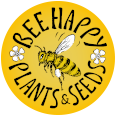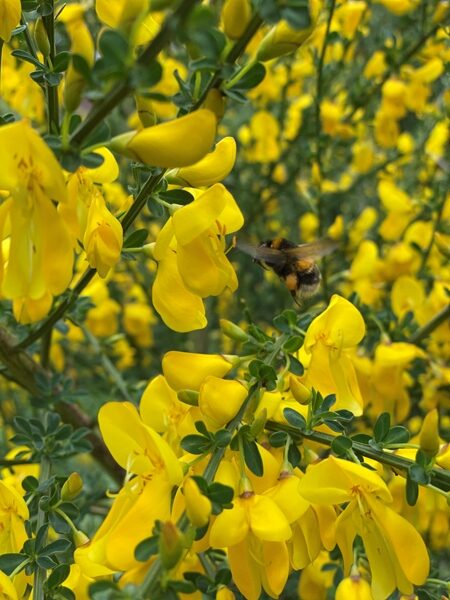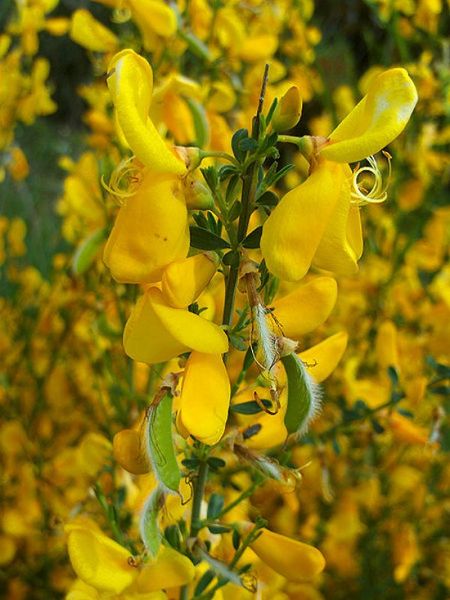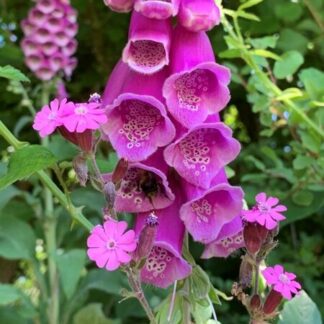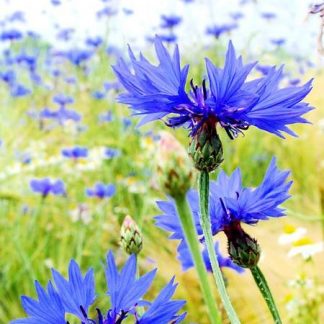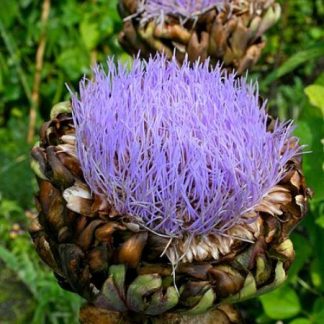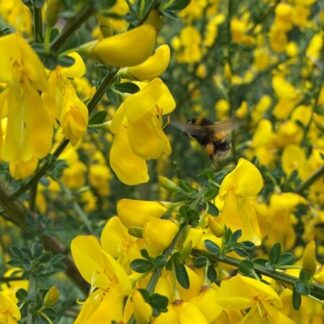Description
Fabaceae (family name)
Forage for Pollinators: Produces Nectar and Pollen in profusion for Long and Short-tongued Bumblebees, and Honeybees (who favour its orange pollen, and opinion is divided as to whether they also collect its nectar).
Flowering time: May, June.
Growing information: DECIDUOUS SHRUB growing to 2.4 m (7ft) by 1 m (3ft 3in) at a fast rate. Hardy to minus 28ºC. The flowers are profuse and musky-scented, rich butter-yellow with the pollen a brownish-orange. Succeeds in most soils, preferring a poor, well-drained slightly acid or neutral soil in a sunny position but tolerates some shade (found in sandy or heath habitats). Drought tolerant once established, growing well on dry banks, in coastal and even in polluted areas. In late summer, its seed pods mature black, 2–3 cm long, 8 mm broad and 2–3 mm thick; they burst open, often with an audible crack, forcibly throwing seed from the parent plant. This is the hardiest species of broom, and produces more pollen and nectar than Genista species Brooms. The flower buds can be pickled and used as a substitute for capers. The active ingredients in the plant is very changeable, which makes it rather unreliable medicinally though rarely, it is used in the treatment of heart complaints, acting upon the electrical conductivity of the heart, slowing and regulating its transmission of impulses. It is salt tolerant and can fix Nitrogen in the soil. Noted for attracting wildlife.
